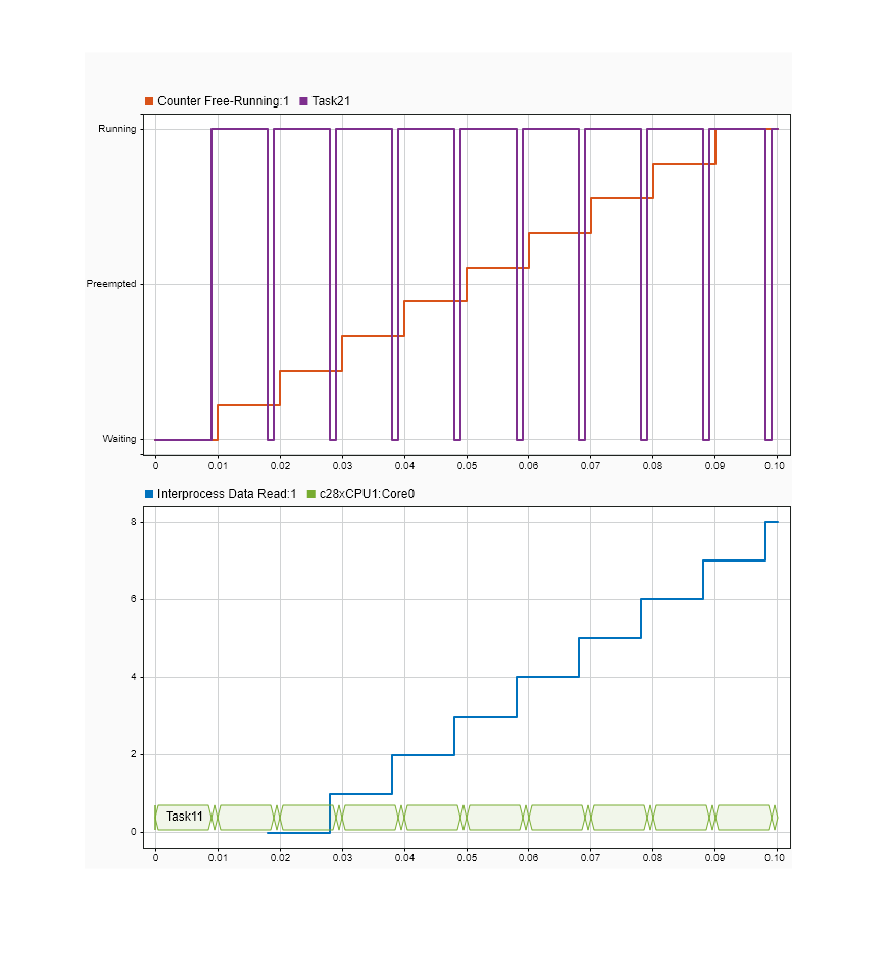Interprocess Data Channel
Model interprocessor data channel between two processors
Libraries:
SoC Blockset /
Processor Interconnect
C2000 Microcontroller Blockset /
Test Bench Blocks
Embedded Coder Support Package for Infineon AURIX TC3x Microcontrollers /
Test Bench Blocks
Embedded Coder Support Package for Infineon AURIX TC4x Microcontrollers /
Test Bench Blocks
Description
The Interprocess Data Channel block simulates the interprocessor data channel available in multiprocessor or OS managed SoC hardware board families. The block provides a channel for asynchronous data transfer between two processors. This diagram shows a generalized view of the interprocessor data connection.

Note
If you are using multiprocessor modeling approach with single model triggering multiple cores using Task manager, use the Interprocess Data Read and Interprocess Data Write blocks to send and receive data between cores.
Use IPC Receive and IPC Transmit blocks to receive or sent data to either core for multi-core processors. Use these blocks for flat model approach where you are using separate models for each core.
Examples
Limitations
In an SoC model, when Interprocess Data Channel blocks form a closed-loop between two or more tasks, it can create an artificial algebraic loop for the Simulink® solver. To break the loop, the Simulink solver implicitly adds a delay into the loop. This delay is related to an internal event and cannot be modified by the user, but the delay typically will be on the same order as the base time-step of the model. For more information on artificial algebraic loops in Simulink solvers, see Artificial Algebraic Loops.
Ports
Input
Output
Parameters
Version History
Introduced in R2020b

